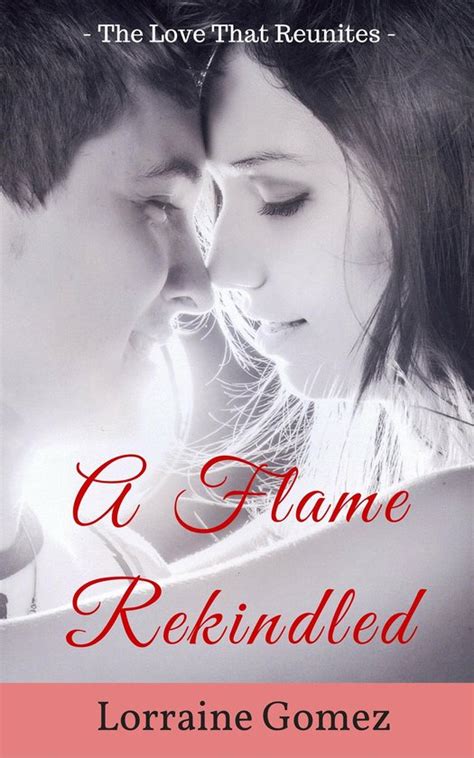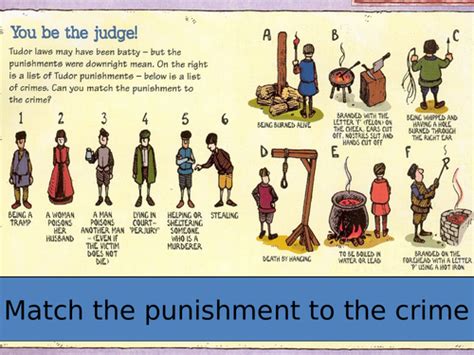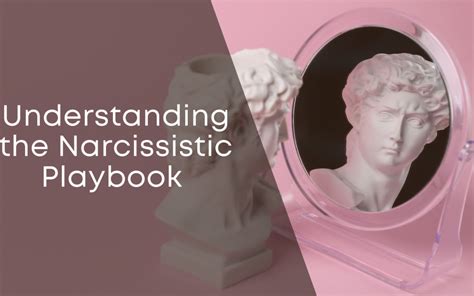
A woman is grappling with a moral dilemma after receiving a proposition from a former high school sweetheart who wants her to leave her husband of 30 years and rekindle their past romance. The woman, identified only as being in a decades-long marriage, sought advice from “Dear Abby” columnist Abigail Van Buren on how to handle the unexpected situation.
A woman, married for three decades, finds herself at a crossroads after her high school flame resurfaces, urging her to abandon her current marriage and revisit their youthful passion. This unexpected proposal has thrown the woman into turmoil, prompting her to seek guidance from the advice column “Dear Abby.”
The unnamed woman, writing to “Dear Abby,” explained that her former high school boyfriend contacted her, expressing his enduring love and a desire to resume their relationship, despite her long-standing marriage. “He wants me to leave my husband and run away with him,” she wrote.
Abigail Van Buren, in her response, firmly advised the woman against considering the proposition, emphasizing the importance of honoring her marital vows and the potential devastation such an action could cause. Van Buren cautioned, “Don’t do it. You made a vow to your husband, and you should honor it.” She further added, “This man is infatuated with a memory. You are not the girl he remembers, and he is not the boy you knew in high school.”
The situation highlights the complexities of long-term relationships, the allure of nostalgia, and the ethical considerations involved when past flames reappear. The woman’s dilemma resonates with many who have experienced similar encounters, underscoring the importance of commitment, communication, and the realities of time’s passage.
The woman’s letter reveals that she has been happily married for 30 years and seemingly content with her life. The sudden re-emergence of her high school sweetheart has disrupted her peace and forced her to confront unresolved feelings from the past. She admits to being flattered by his attention but also recognizes the potential consequences of acting on his proposition.
Van Buren’s advice emphasizes the sanctity of marriage and the potential for unrealistic expectations when romanticizing the past. She suggests that the man’s idealized vision of their high school romance may not align with reality and that pursuing the relationship could lead to disappointment and heartache.
The incident serves as a reminder of the enduring power of first love and the challenges of navigating long-term relationships. It raises questions about whether past connections can ever truly be rekindled and whether the allure of nostalgia can outweigh the commitments of the present.
The “Dear Abby” column has a long history of addressing sensitive and complex relationship issues, providing readers with guidance and support in navigating the challenges of love, marriage, and family. Van Buren’s advice is often practical, straightforward, and rooted in common sense, making her a trusted source of wisdom for generations.
In this particular case, her advice is clear and unequivocal: honor your commitments and resist the temptation to romanticize the past. The potential for disruption and pain is too great, and the likelihood of finding true happiness in rekindling a high school romance after 30 years is slim.
The woman’s dilemma underscores the importance of open communication within a marriage. While she may be tempted to keep the encounter with her high school sweetheart a secret, it could be beneficial to discuss the situation with her husband. Sharing her feelings and concerns could strengthen their bond and help her gain perspective on the situation.
Ultimately, the decision rests with the woman. She must weigh the potential rewards and risks of pursuing a relationship with her former flame against the commitments and responsibilities of her marriage. The “Dear Abby” advice provides a valuable framework for considering the ethical and practical implications of her choice.
Detailed Analysis and Context
The resurgence of a high school romance decades later is a theme that resonates deeply with many people. It taps into feelings of nostalgia, the “what ifs” of life, and the enduring power of first love. This particular scenario, as presented to “Dear Abby,” highlights several critical aspects of relationships, commitment, and the challenges of aging.
The Allure of Nostalgia:
Nostalgia is a powerful emotion. It can create a sense of longing for a simpler time, a time of youthful optimism and unbridled passion. The high school sweetheart often represents this idealized past, a time before the responsibilities and compromises of adulthood. For the woman in this scenario, the re-emergence of her former boyfriend may evoke a sense of excitement and a longing for the carefree days of her youth.
However, as Abigail Van Buren points out, nostalgia can be deceiving. The man is likely infatuated with a memory, an idealized version of the woman she was in high school. Both individuals have changed significantly over the past 30 years, and the reality of rekindling their romance may not live up to the expectations.
The Importance of Commitment:
Marriage is a commitment, a vow to love and cherish another person “for better, for worse, for richer, for poorer, in sickness and in health, until death do us part.” This commitment is the foundation of a stable and loving relationship. Breaking that commitment can have devastating consequences, not only for the individuals involved but also for their families and friends.
Abigail Van Buren rightly emphasizes the importance of honoring marital vows. By advising the woman to stay with her husband, she is upholding the sanctity of marriage and promoting the values of loyalty and commitment.
The Realities of Long-Term Relationships:
Long-term relationships require work, compromise, and a willingness to adapt to change. Over time, couples face numerous challenges, including financial difficulties, health problems, and the everyday stresses of life. It is through these challenges that relationships are tested and strengthened.
The woman in this scenario has been married for 30 years, suggesting that she and her husband have successfully navigated these challenges. To throw away that history and commitment for the sake of a fleeting romance would be a grave mistake.
The Potential for Disappointment:
Even if the woman were to leave her husband and pursue a relationship with her high school sweetheart, there is no guarantee of happiness. In fact, the likelihood of disappointment is high. As Abigail Van Buren points out, the man is infatuated with a memory, not the woman she is today.
The reality of rekindling a high school romance after 30 years is likely to be far different from the idealized vision. The individuals may have different values, goals, and expectations. They may find that they no longer have anything in common.
The Impact on Others:
The woman’s decision would not only affect her own life but also the lives of her husband, her family, and her friends. Leaving her husband would cause him immense pain and suffering. It could also damage her relationships with her children, her parents, and her friends.
It is important for the woman to consider the impact of her decision on others before taking any action. She must weigh the potential benefits of rekindling her high school romance against the potential harm to those she loves.
The Ethical Considerations:
The woman’s dilemma raises several ethical considerations. Is it ethical to break a marital vow? Is it ethical to pursue a relationship that could cause harm to others? Is it ethical to act on feelings of nostalgia and romanticize the past?
These are difficult questions with no easy answers. Ultimately, the woman must make a decision that she can live with, a decision that is consistent with her values and her conscience.
Communication is Key:
While the temptation to keep this encounter a secret might be strong, open communication with her husband is paramount. Sharing her feelings, the content of the communication from her high school sweetheart, and her internal conflict could strengthen their bond. Keeping such a significant event hidden can breed distrust and resentment, potentially damaging the marriage more than the initial proposition. A candid conversation allows both partners to address any underlying issues within the marriage that might be contributing to the allure of the past.
Alternative Perspectives:
While Abigail Van Buren’s advice is sound and grounded in traditional values, it’s important to acknowledge that there are alternative perspectives on this type of situation. Some might argue that if the woman is truly unhappy in her marriage, she has a right to pursue happiness elsewhere. Others might suggest that a relationship with a former flame could be a catalyst for positive change in her marriage, even if it doesn’t ultimately lead to a romantic relationship.
However, these alternative perspectives should be considered with caution. It is important to carefully weigh the potential risks and benefits before taking any action that could have a significant impact on the lives of others.
The Importance of Self-Reflection:
The woman’s dilemma is an opportunity for self-reflection. She should ask herself why she is even considering the proposition from her high school sweetheart. Is she truly unhappy in her marriage? Is she simply bored or restless? Is she seeking validation from someone outside of her marriage?
By understanding her own motivations, she can make a more informed decision about how to proceed. She may find that the allure of the past is simply a distraction from underlying issues in her present life.
The Role of Counseling:
If the woman is struggling to make a decision, she may benefit from seeking professional counseling. A therapist can help her explore her feelings, identify her needs, and develop a plan for moving forward. Counseling can also provide a safe and supportive space for her to discuss her concerns without judgment.
Couple’s counseling could also be beneficial, allowing the woman and her husband to address any underlying issues in their marriage and strengthen their bond.
The Long-Term View:
It’s crucial for the woman to consider the long-term implications of her decision. A fleeting romance might provide a temporary rush of excitement, but it is unlikely to provide lasting happiness. A stable and loving marriage, on the other hand, can provide a lifetime of companionship, support, and love.
The woman should ask herself what she values most in life. Is it fleeting pleasure or lasting happiness? Is it excitement or stability? Is it the allure of the past or the promise of the future?
Conclusion:
The woman’s dilemma is a complex and challenging one. There is no easy answer, and the decision rests solely with her. However, by considering the ethical implications, the potential impact on others, and the long-term consequences, she can make a decision that is consistent with her values and her conscience. Abigail Van Buren’s advice provides a valuable framework for navigating this difficult situation, emphasizing the importance of commitment, communication, and the realities of time’s passage. Ultimately, the woman must choose the path that will lead to the greatest happiness and fulfillment for herself and those she loves. The focus should be on preserving the sanctity of the vows made and considering the consequences of actions that could alter the lives of everyone involved.
Frequently Asked Questions (FAQs)
1. What is the central issue in the “Dear Abby” letter?
The main issue is a woman’s moral dilemma after her former high school boyfriend contacted her, expressing his desire for her to leave her husband of 30 years and rekindle their old romance. She wrote to “Dear Abby” seeking advice on how to handle this unexpected proposition.
2. What advice did Abigail Van Buren (Dear Abby) give to the woman?
Abigail Van Buren strongly advised the woman against considering the proposition. She emphasized the importance of honoring her marital vows and cautioned that the man is likely infatuated with a memory of her, not the person she is today. She urged her to remain committed to her husband.
3. Why did the woman seek advice from “Dear Abby” instead of discussing it with her husband first?
The article does not explicitly state why she chose to write to “Dear Abby” first. However, it can be inferred that she might have been hesitant to discuss it with her husband due to the sensitive nature of the proposition and the potential for causing him distress or suspicion. She may have been seeking an unbiased opinion before deciding how to approach the situation with her husband.
4. What are the potential risks and consequences if the woman decides to leave her husband?
The potential risks and consequences are significant. They include:
- Emotional distress and heartbreak for her husband.
- Potential damage to her relationships with her children, family, and friends.
- The possibility that the rekindled romance with her high school sweetheart may not live up to expectations, leading to further disappointment.
- Financial and legal complications associated with divorce.
- The disruption of a stable and long-term relationship for the sake of a fleeting romance.
5. What does this situation reveal about the nature of long-term relationships and nostalgia?
This situation highlights the complexities of long-term relationships, the enduring power of first love, and the allure of nostalgia. It underscores the challenges of maintaining commitment over time and the potential for unrealistic expectations when romanticizing the past. It also raises questions about whether past connections can ever truly be rekindled and whether the desire for something new can outweigh the value of established bonds. It emphasizes the importance of open communication and self-reflection in navigating such dilemmas within a marriage.









